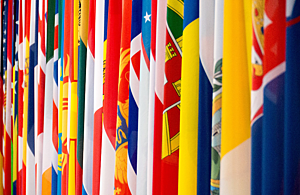Yemen’s leaders must act now to prevent coronavirus catastrophe
On 27 April, Abdulaziz Alqadhi, a local furniture store owner from Al Mansourah in Aden, became Yemen’s first officially recorded coronavirus fatality. A day later, his brother Ahmed fell victim to Covid-19 too. In the weeks since many Yemenis have lost loved ones to this deadly virus. Across Yemen, the spread of the infection is likely to be far higher than official data suggests. Sadly, this is just the beginning.
Yemen is of course not alone in its exposure to this global pandemic, but in Yemen Covid-19 is menacing a country already devastated by five years of war, hunger and disease. Over the coming months, many more Yemenis will die from coronavirus – be it from the virus itself or its impact on the already fragile economy and health sector. How Yemen’s leaders respond to this threat will determine how many more Yemenis lose their lives.
There is an opportunity for positive action. But it is deeply concerning that some of Yemen’s leaders have shirked their responsibilities and sought to use the crisis to serve their own narrow agendas. We have heard reports of the Houthis blaming migrants for the outbreak and stopping cases of coronavirus being recorded. We must see through this smoke screen.
Across the country, needless restrictions on the international humanitarian response are preventing aid from getting to those that need it most. The UN, the WHO and international NGOs are doing all they can to save Yemeni lives. We have provided £810 million in UK aid to provide food, water and sanitation since the conflict began. But these humanitarian organisations can only do what Yemen’s leaders allow them to. In Houthi-controlled areas, these restrictions are so severe that they are preventing the delivery of aid to millions of people in need, meaning some donors have had no choice but to suspend their funding at the time when Yemen needs aid most. I call on Yemen’s leaders to immediately facilitate humanitarian access and operations to help us win the fight against coronavirus.
Ultimately, the biggest impediment to the fight against the coronavirus remains Yemen’s horrific conflict. In this respect, the recent Houthi aggression towards Marib and the conflict in the south are especially concerning. The Southern Transitional Council’s self-rule declaration and latest campaign of violence only complicate UN efforts to tackle the coronavirus outbreak and reverse progress towards ending this war.
On 25 March, UN Secretary-General Guterres – backed by the UK and all permanent members of the UN Security Council – called for a nationwide ceasefire in Yemen. This statement was welcomed unconditionally by all parties and, on 9 April, the Kingdom of Saudi Arabia took the decision to announce a unilateral ceasefire in Yemen and to limit its military activities to purely defensive operations. In spite of the determined efforts by the UN Special Envoy, Martin Griffiths, the Yemeni parties have not yet agreed to the UN’s proposals for a nationwide ceasefire, humanitarian and economic measures, and a political process that can end this grim conflict.
The UN’s proposals are Yemen’s best hope of peace and of limiting the destruction of the Covid pandemic. The decision to do so now rests in the hands of Yemen’s leaders. I encourage them to take the courageous steps needed to accelerate their engagement with the UN on Griffiths’ proposals and to agree urgently a nationwide ceasefire to spare Yemeni lives from coronavirus. Political games, aggressive statements and provocative social media have no place.
Yemen was already one of the world’s most desperate humanitarian disasters. Under the shadow of coronavirus, it now faces a tragedy of unimaginable scale. For the sake of all Yemenis, Yemen’s leaders must now park their differences and agree a political solution to fight coronavirus in Yemen and provide a pathway out of this wretched conflict. This needs to include urgent steps to: facilitate humanitarian access; free political prisoners – including detained British national Luke Symons; reach agreement on a nationwide ceasefire; and build humanitarian and economic confidence. These responsible actions are within their power.
It is the time to act. Actions, not words, are how the Yemeni people – and indeed the world – will judge their leaders. Millions of lives depend on it.
